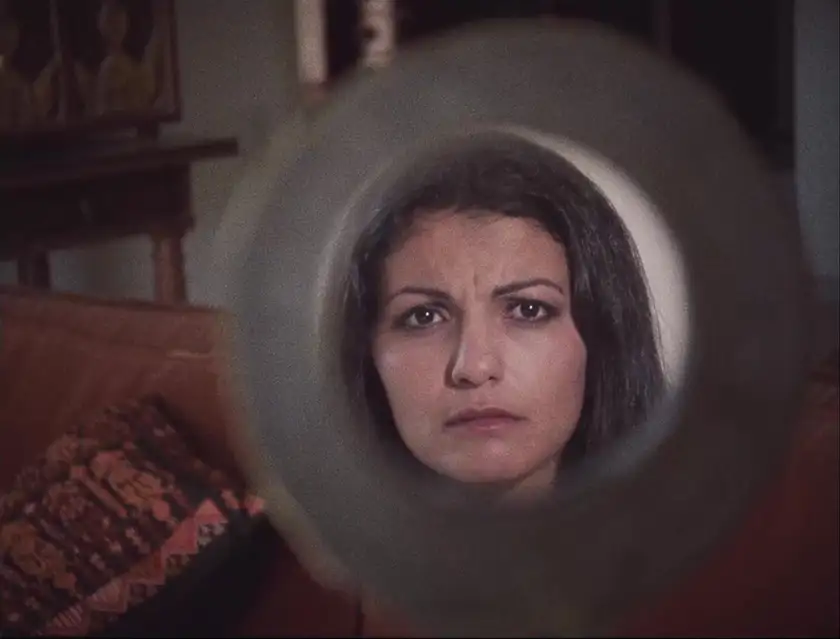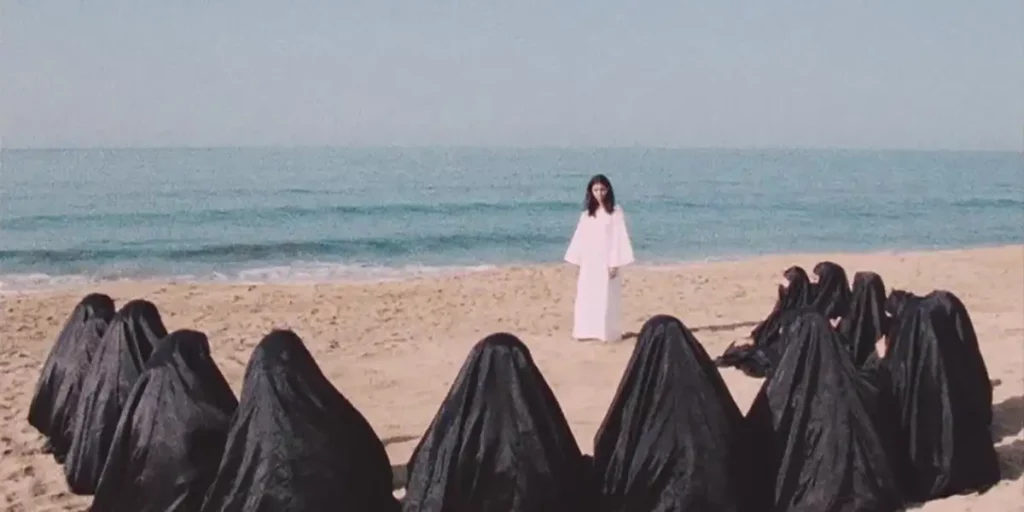Newly restored on its 40th anniversary, Heiny Srour’s Leila and the Wolves is a timely and powerful documentary that challenges our traditional understanding of history.
Director: Heiny Srour
Genre: Documentary
Run Time: 90′
Open City Documentary Festival screening: April 30, 2024
Restoration Release: March 14, 2025 (US & Canada, theatrical)
“In those days, women had nothing to do with politics,” is a line from Heiny Srour’s Leila and the Wolves (Leila wa al Ziap) that many of us have probably heard countless times in real life. Regardless of what time someone may be referring to, this statement is often shared as the ultimate truth, but the film invites us to question this, asking the audience whether it was true to begin with.
On the 40th anniversary of the movie, which first came out in 1984, a new digital restoration was screened as the closing night of the Open City Documentary Festival in London.
Leila and the Wolves follows its titular protagonist (Nabila Zeitoni), a Lebanese woman living in 1980s London, as she stages a photographic exhibition that showcases women as the unsung heroes of turbulent political conflicts. As Leila uncovers untold powerful moments in the history of the Middle East, she travels back in time through the 1900s and 1980s in a visionary journey that spans various decades and historical spaces. Each sketch portraying a different time period allows Leila, and by proxy the viewers themselves, to witness the central role of women in resistance movements in Palestine and Lebanon.
The film’s structure is fascinating: the main narrative of Leila travelling back in time functions as the general framework to connect all the singular self-contained sketches that illustrate various historical moments. Therefore, Leila and the Wolves takes the audience through a journey and time and place, rewriting some crucial pages of history. The scenes themselves are all unique and yet united by the fact that the same actors feature in all of them, and by the overarching theme of female resistance. This also allows the documentary to show us different types of resistance, proving that revolutionary action, whether domestic or militant, can take many different but valid forms.

With its reflection on the importance of memory and resistance, the documentary is a necessary viewing in this day and age. It’s haunting to think that much of Leila and the Wolves could have been filmed today, in a world where violence, destruction, and a state of warfare are still an everyday reality in the Middle East. In the face of a historical feel that films so contemporary and timely today and the current targeting of Palestinian audio-visual records, the efforts to restore Leila and the Wolves and keep its legacy alive seem even more important. More than anything else, this film is a testament to the collective memory of Arab women and their key role in the history of their countries.
Leila and the Wolves challenges our traditional understanding of history, showing the audience new and undiscovered perspectives. The film also pushes boundaries of the genre: while it may not be a documentary in the strict sense of the term, given the various re-enactments and fictional narrative devices it employs, it does stay true to the historical reality it portrays. While that may not be enough to consider it a documentary, this is not the point of a movie that focuses so much on the importance of uncovering historical realities we may only know little about. Watching the film today highlights the importance of documentation through media, particularly when it comes to these untold narratives.
I sat in a screening room in central London watching a digital restoration of Leila and the Wolves on a sunny afternoon, safe and able to enjoy this crucial work, but many women today do not have the same privilege. The images in this film never failed to remind me of this. The documentary forces us to sit through uncomfortable scenes of death and violence, but this is particularly important to properly portray the very real conditions these women lived through – and still live through, as Palestinian women are killed daily – even at the expense of the audience’s comfort at times.
Leila and the Wolves was the closing film of the 2024 Open City Documentary Festival. The restoration will have its US premiere on March 14, 2025 at BAM Cinemas, followed by a national theatrical rollout in select U.S. and Canadian cities.

